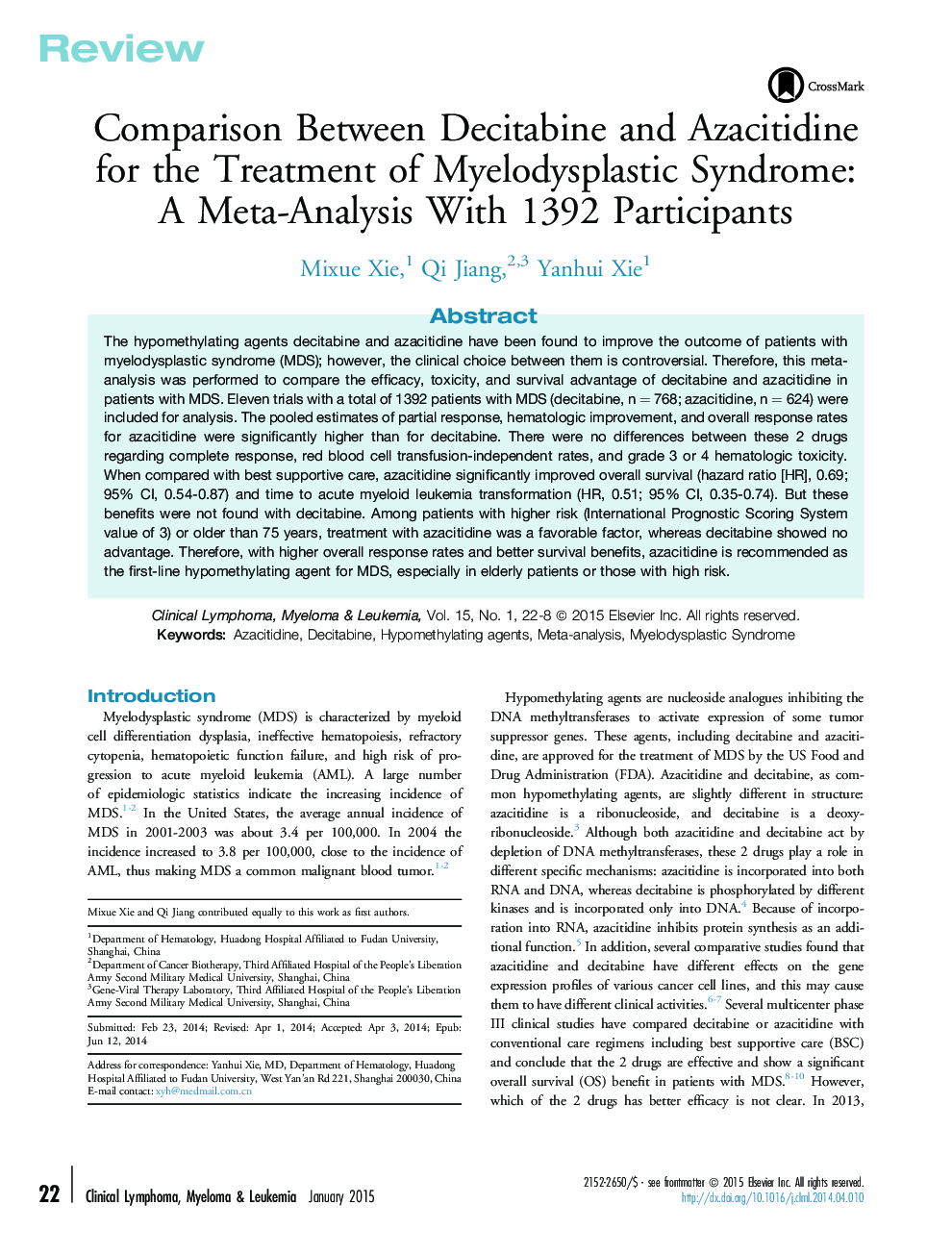| Article ID | Journal | Published Year | Pages | File Type |
|---|---|---|---|---|
| 5882824 | Clinical Lymphoma Myeloma and Leukemia | 2015 | 7 Pages |
The hypomethylating agents decitabine and azacitidine have been found to improve the outcome of patients with myelodysplastic syndrome (MDS); however, the clinical choice between them is controversial. Therefore, this meta-analysis was performed to compare the efficacy, toxicity, and survival advantage of decitabine and azacitidine in patients with MDS. Eleven trials with a total of 1392 patients with MDS (decitabine, n = 768; azacitidine, n = 624) were included for analysis. The pooled estimates of partial response, hematologic improvement, and overall response rates for azacitidine were significantly higher than for decitabine. There were no differences between these 2 drugs regarding complete response, red blood cell transfusion-independent rates, and grade 3 or 4 hematologic toxicity. When compared with best supportive care, azacitidine significantly improved overall survival (hazard ratio [HR], 0.69; 95% CI, 0.54-0.87) and time to acute myeloid leukemia transformation (HR, 0.51; 95% CI, 0.35-0.74). But these benefits were not found with decitabine. Among patients with higher risk (International Prognostic Scoring System value of 3) or older than 75 years, treatment with azacitidine was a favorable factor, whereas decitabine showed no advantage. Therefore, with higher overall response rates and better survival benefits, azacitidine is recommended as the first-line hypomethylating agent for MDS, especially in elderly patients or those with high risk.
